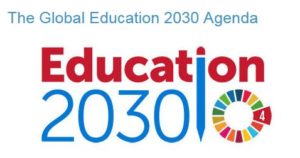Refugees at the centre of global education plans
A commitment to include migrants, displaced persons and refugees in education and training systems and a focus on education as a driver of sustainable development are the key messages to come out of the a high-level international conference on global education.
UNESCO’s Global Education Meeting in Brussels last month saw 350 education ministers, bureaucrats and civil society agencies gather to review progress on the Global Education 2030 Agenda.
The meeting also committed to promote lifelong learning and related topics such as adult education and literacy and the recognition, validation and accreditation of non-formal and informal learning.
The conference’s outcome statement also included a “reaffirmation of the fundamental role of education, training, lifelong learning, higher education and research as key drivers for sustainable development, including for climate change”.
The statement made a commitment to include “migrants, displaced persons and refugees in education and training systems and to facilitate the recognition of their qualifications, learning and skills”.
It promised to promote “open, flexible and responsive education and training systems” that support the development of a broader range of knowledge, skills and competencies, from early childhood to adulthood.
Signatories promised to ensure publicly funded, relevant initial and continuous professional development for teachers, educators, trainers and school leaders.
They reaffirmed a commitment to eradicate illiteracy through formal and non-formal education and ensure equitable access to digital literacy, as well as media and information literacy as a continuum of proficiency levels within a lifelong learning perspective.
The meeting made a commitment to supporting lifelong learning opportunities for all to ensure necessary competencies for personal development, decent work and sustainable development, with attention to climate change, adaptation and mitigation.
And it promised the recognition of the importance of skills acquired through non-formal and informal education and learning.
The UNESCO Institute for Lifelong Learning is in the process of developing both a handbook on lifelong learning to help guide member states in implementing policies and plans and the 2019 Global Report on Adult Learning and Education (GRALE 4), which will shed light on the current state of adult education around the world.
The Global Education 2030 Agenda is part of the 2030 Agenda for Sustainable Development, an ambitious, aspirational and universal agenda to wipe out poverty through sustainable development by 2030.
When it adopted the new Agenda in September 2015, the international community recognised that education was essential for the success of all 17 of its goals.
Ambitions for education are essentially captured in Sustainable Development Goal 4 which aims to “ensure inclusive and equitable quality education and promote lifelong learning opportunities for all”.
Through the Incheon Declaration adopted at the World Education Forum in May 2015, UNESCO, as the United Nations’ specialized agency for education, was entrusted to lead and coordinate the Education 2030 agenda with its partners.
The roadmap to achieve the ten targets of the education goal is the Education 2030 Framework for Action, adopted in November 2015, which provides guidance to governments and partners on how to turn commitments into action.
Laurie Nowell
AMES Australia Senior Journalist












